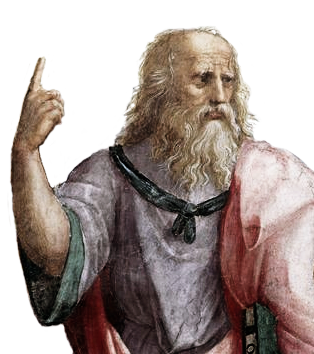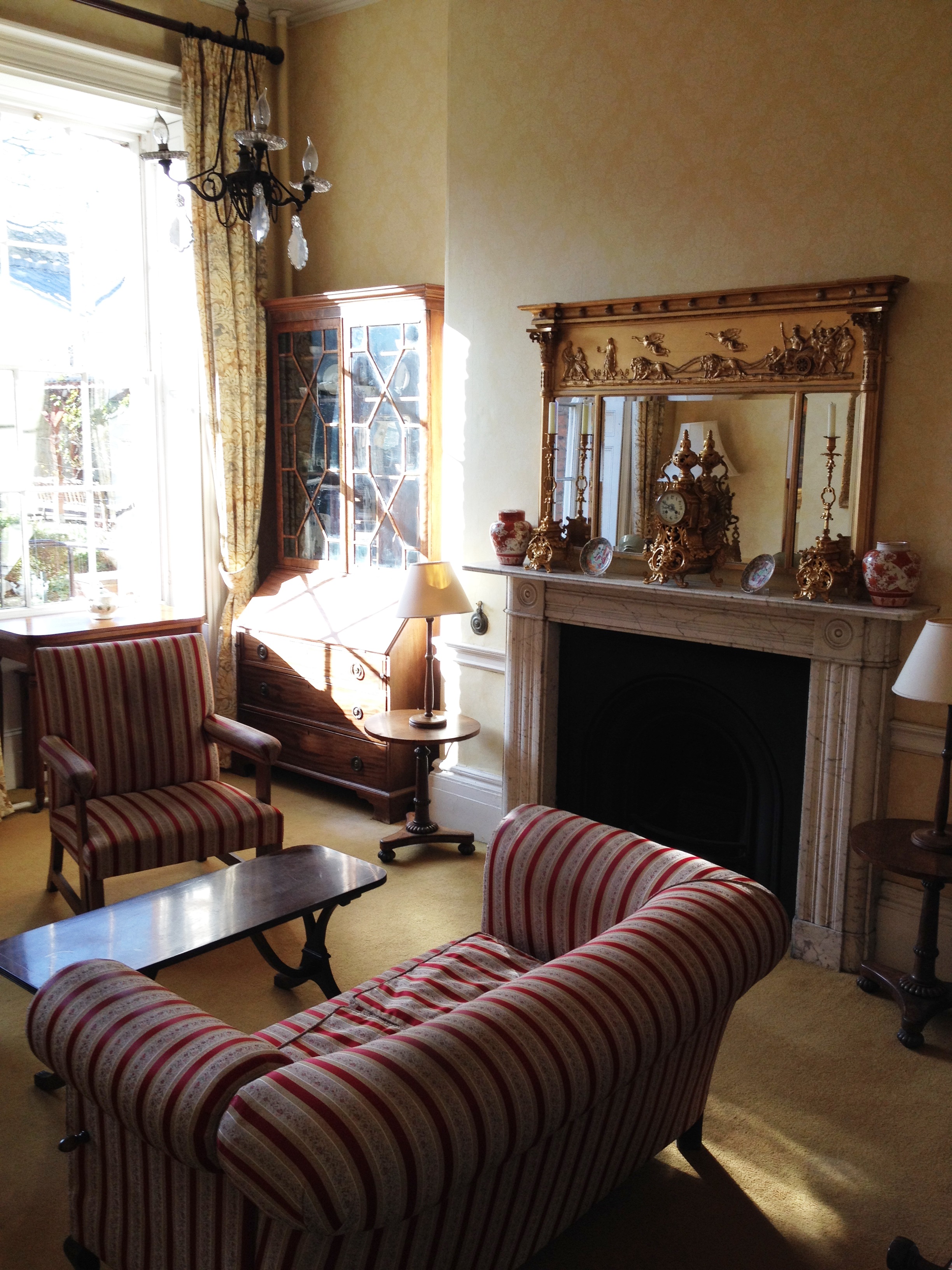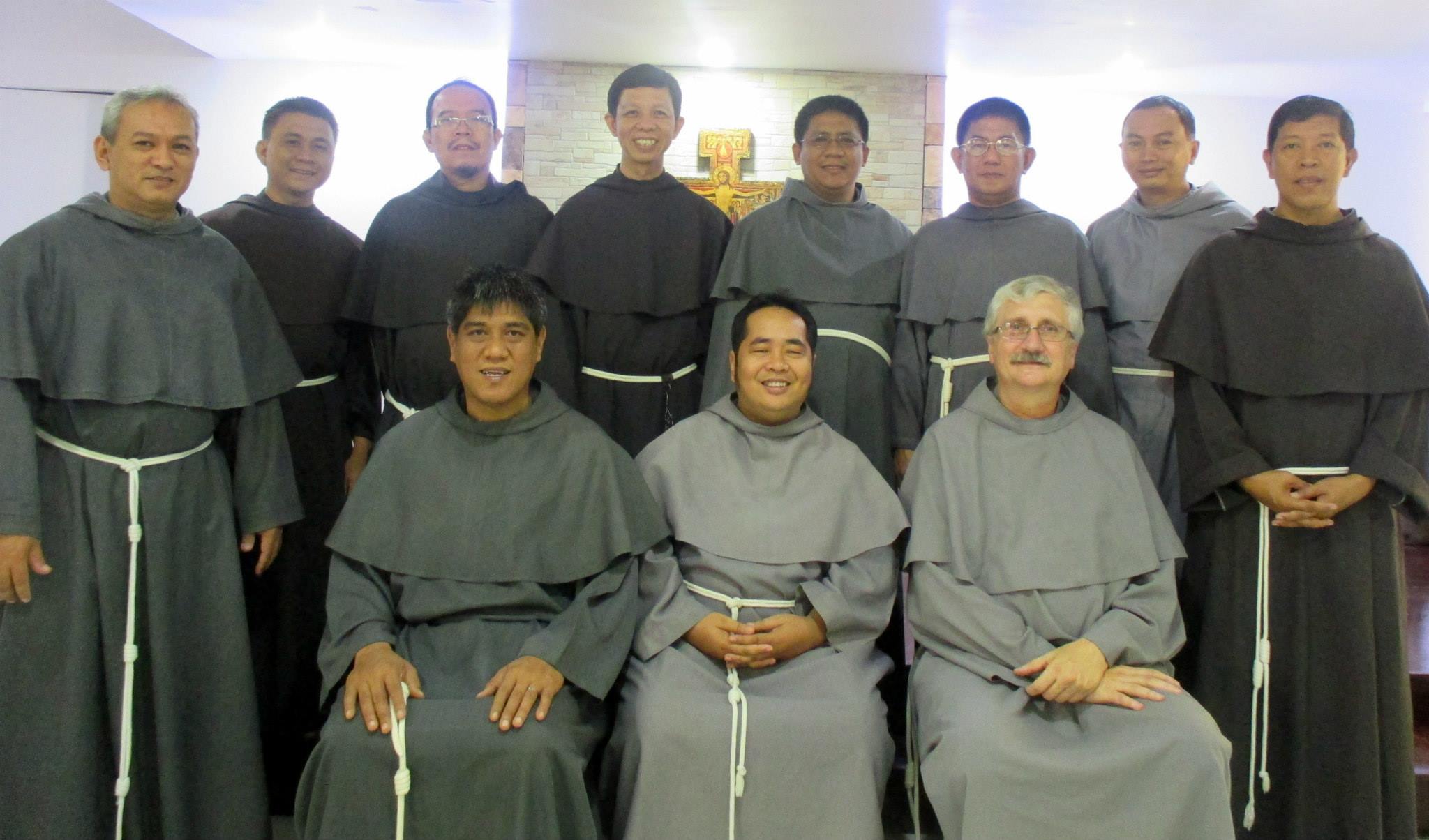|
Brian Davies (philosopher)
Brian Evan Anthony Davies (born 7 July 1951) is a British philosopher, Roman Catholic priest, and friar. He is Distinguished Professor of Philosophy, Fordham University since 1995. His ''An Introduction to the Philosophy of Religion'' is in its fourth English edition and has been translated into five languages. Education Brian Davies studied theology at the University of Bristol (BA 1972) and undertook graduate studies at King's College London (MTh, 1973; Tutorial Assistant, 1974–6; PhD, 1976). Teaching He spent the period 1982–95 at the University of Oxford. Throughout those years he was a lecturer in theology and philosophy at Blackfriars, Oxford. Davies was also Tutor in Theology, St Benet's Hall and a member of the Faculty of Theology (1983–95); Regent of Studies of the English Dominican Province (1988–95); University Research Lecturer (1993–95); and member of the Sub-Faculty of Philosophy (1994–95). In 1994 Davies was appointed Regent of Blackfriars and, as ... [...More Info...] [...Related Items...] OR: [Wikipedia] [Google] [Baidu] |
The Reverend
The Reverend (abbreviated as The Revd, The Rev'd or The Rev) is an honorific style (form of address), style given to certain (primarily Western Christian, Western) Christian clergy and Christian minister, ministers. There are sometimes differences in the way the style is used in different countries and church traditions. ''The Reverend'' is correctly called a ''style'', but is sometimes referred to as a title, form of address, or title of respect. Etymology The term is an anglicisation of the Latin , the style originally used in Latin documents in medieval Europe. It is the gerundive or future passive participle of the verb ("to respect; to revere"), meaning "[one who is] to be revered/must be respected". ''The Reverend'' is therefore equivalent to ''the Honourable'' or ''the Venerable''. Originating as a general term of respectful address in the 15th century, it became particularly associated with clergy by the 17th century, with variations associated with certain ranks in th ... [...More Info...] [...Related Items...] OR: [Wikipedia] [Google] [Baidu] |
Blackfriars, Oxford
Blackfriars Priory (formally the Priory of the Holy Spirit) is a Dominican religious community in Oxford, England. Its primary work is the administration of two educational institutions: Blackfriars Studium, a centre of theological studies in the Roman Catholic tradition; and Blackfriars Hall, a constituent permanent private hall of the University of Oxford. The current prior of Blackfriars is Dominic White. The name ''Blackfriars'' is commonly used in Britain to denote a house of Dominican friars, a reference to their black ''cappa'', which forms part of their habit. Blackfriars is located in central Oxford on St Giles', between the Ioannou Centre for Classical and Byzantine Studies and St Cross College. History The Dominicans arrived in Oxford on 15 August 1221, at the instruction of a General Chapter meeting headed by Saint Dominic himself, little more than a week after the friar's death. As such, the hall is heir to the oldest tradition of teaching in Oxford, a tradit ... [...More Info...] [...Related Items...] OR: [Wikipedia] [Google] [Baidu] |
Problem Of Evil
The problem of evil is the philosophical question of how to reconcile the existence of evil and suffering with an Omnipotence, omnipotent, Omnibenevolence, omnibenevolent, and Omniscience, omniscient God.The Stanford Encyclopedia of Philosophy,The Problem of Evil, Michael TooleyThe Internet Encyclopedia of Philosophy,, Nick Trakakis There are currently differing definitions of these concepts. The best known presentation of the problem is attributed to the Greek philosopher Epicurean paradox, Epicurus. Besides the philosophy of religion, the problem of evil is also important to the fields of theology and ethics. There are also many discussions of evil and associated problems in other philosophical fields, such as secular ethics and evolutionary ethics. But as usually understood, the problem of evil is posed in a theological context. Religious responses to the problem of evil, Responses to the problem of evil have traditionally been in three types: refutations, defenses, and Theo ... [...More Info...] [...Related Items...] OR: [Wikipedia] [Google] [Baidu] |
Classical Theism
Classical theism is a theological and philosophical form of theism that conceives of God as the ultimate reality, ultimate reality, characterized by attributes such as omnibenevolence, omnipotence, and omniscience. Rooted in the ancient Greek philosophy of Plato and Aristotle, classical theism presents God as a deity that is Immutability (theology), immutable, Impassibility, impassible, Transcendence (religion), transcendent, and entirely self-sufficient. This understanding of God emphasizes divine simplicity, where God's essence and existence are identical, making him fundamentally distinct from all created beings. Throughout history, classical theism has significantly shaped the doctrines of major religious traditions, particularly within Christianity, Judaism, and Islam. The early Church Fathers, like Irenaeus, Clement of Alexandria and Augustine of Hippo, Augustine incorporated classical theistic ideas into Christian theology, establishing a framework that was later to be re ... [...More Info...] [...Related Items...] OR: [Wikipedia] [Google] [Baidu] |
Emory University
Emory University is a private university, private research university in Atlanta, Georgia, United States. It was founded in 1836 as Emory College by the Methodist Episcopal Church and named in honor of Methodist bishop John Emory. Its main campus is in Druid Hills, Georgia, Druid Hills, from downtown Atlanta. Emory University comprises nine undergraduate, graduate, and professional schools, including Emory College of Arts and Sciences, Goizueta Business School, Nell Hodgson Woodruff School of Nursing, Oxford College of Emory University, Oxford College, Emory University School of Medicine, Emory University School of Law, Rollins School of Public Health, Candler School of Theology, and Laney Graduate School. Emory University enrolls nearly 16,000 students from the U.S. and over 100 foreign countries. Emory Healthcare is the largest healthcare system in the state of Georgia (U.S. state), Georgia and comprises seven major hospitals, including Emory University Hospital and Emory Un ... [...More Info...] [...Related Items...] OR: [Wikipedia] [Google] [Baidu] |
Candler School Of Theology
Candler School of Theology is one of seven graduate schools at Emory University, located in Atlanta metropolitan area, metropolitan Atlanta, Georgia (U.S. state), Georgia. A university-based school of theology, Candler educates Minister (Christianity), ministers, Religious studies, scholars of religion and other leaders. It is also one of 13 seminaries affiliated with the United Methodist Church. Mission statement Candler School of Theology is grounded in the Christian faith and shaped by the Wesleyanism, Wesleyan tradition of evangelical piety, ecumenical openness, and social concern. Its mission as a university-based school of theology is to educate—through scholarship, teaching, and service—faithful and creative leaders for the church's ministries throughout the world. History In March 1914, the Methodist Episcopal Church, South (MECS) and Vanderbilt University, a flagship institution of higher education for the church, severed ties. MECS appointed an Educational Commi ... [...More Info...] [...Related Items...] OR: [Wikipedia] [Google] [Baidu] |
Beda College
The Pontifical Beda College () is a Catholic seminary in Rome. It was founded as the ''Collegio Ecclesiastico'' at the Palazzo dei Convertendi in 1852 by Pope Pius IX and is intended for older men, often convert clergymen, wishing to prepare for the priesthood. History This college was moved in 1854 to the English College to accommodate a larger number of clergymen from England who had joined the Roman Catholic Church from other Christian denominations and wished to prepare for the Catholic priesthood. They came for only four years, because they were seen to have significant experience already. Here the college became known as the ''Collegio Pio''. It also included lifelong Catholics drawn to the priesthood later in life, and priests studying for post-graduate degrees in Rome. Pope Leo XIII issued a new constitution in 1898 and placed the college under the patronage of Bede, the eighth-century Anglo-Saxon monk and scholar. Edward Henry Howard bequeathed to the two colleges h ... [...More Info...] [...Related Items...] OR: [Wikipedia] [Google] [Baidu] |
Theology Faculty Of The University Of Oxford
The Oxford Faculty of Theology and Religion co-ordinates the teaching of theology at the University of Oxford. It is part of Oxford's Humanities Division. The Theology Faculty Centre was at 34 St Giles' in central Oxford. It is now on the second floor of the Gibson Building in the Radcliffe Observatory Quarter on Woodstock Road. History One of the first series of lectures delivered at Oxford University was on theology. As early as 1193, Alexander Neckam from St Albans gave biblical and moral lectures on the Psalms of David and the Wisdom of Solomon. One of the first university buildings was the Divinity School, begun in 1423 specifically for theology lectures. The modern theological faculty emerges during the reform of the University of Oxford in the nineteenth century. The Final Honour School of Theology - as a route to the Bachelor of Arts degree - was introduced in 1869. Up until then, theological study was the reserve of graduates and those seeking ordination in th ... [...More Info...] [...Related Items...] OR: [Wikipedia] [Google] [Baidu] |
St Benet's Hall, Oxford
St Benet's Hall (known colloquially as Benet's) was a permanent private hall (PPH) of the University of Oxford, originally a Catholic church, Roman Catholic religious house of studies. It closed in 2022. The principal building was located at the northern end of St Giles', Oxford, St Giles' on its western side, close to the junction with Woodstock Road (Oxford), Woodstock Road, Oxford. History Benedictine antecedents Benedictines, Benedictine monks had studied at Oxford since at least 1281, when Gloucester Abbey founded Gloucester College, Oxford, Gloucester College. The area today known as Gloucester Green was named after this college. In 1291, Durham Abbey founded Durham College, Oxford, Durham College, and in 1362, Christ Church Priory in Canterbury founded Canterbury College, Oxford, Canterbury College. All three Benedictine houses of study were closed between 1536 and 1545, during the dissolution of the monasteries under Henry VIII. Gloucester College was eventually re-foun ... [...More Info...] [...Related Items...] OR: [Wikipedia] [Google] [Baidu] |
Friar
A friar is a member of one of the mendicant orders in the Catholic Church. There are also friars outside of the Catholic Church, such as within the Anglican Communion. The term, first used in the 12th or 13th century, distinguishes the mendicants' itinerant apostolic character, exercised broadly under the jurisdiction of a superior general, from the older monastic orders' allegiance to a single monastery formalized by their vow of stability. A friar may be in holy orders or be a non-ordained brother. The most significant orders of friars are the Dominicans, Franciscans, Augustinians, and Carmelites. Definition Friars are different from monks in that they are called to the great evangelical counsels (vows of poverty, chastity, and obedience) in service to society, rather than through cloistered asceticism and devotion. Whereas monks live in a self-sufficient community, friars work among laypeople and are supported by donations or other charitable support. Monks or nuns m ... [...More Info...] [...Related Items...] OR: [Wikipedia] [Google] [Baidu] |
Roman Catholic Priest
The priesthood is the office of the ministers of religion, who have been commissioned ("ordained") with the holy orders of the Catholic Church. Technically, bishops are a priestly order as well; however, in common English usage ''priest'' refers only to presbyters and pastors (parish priests). The church's doctrine also sometimes refers to all baptised members (inclusive of the laity) as the " common priesthood", which can be confused with the ministerial priesthood of the ordained clergy. The church has different rules for priests in the Latin Church–the largest Catholic particular church–and in the 23 Eastern Catholic Churches. Notably, priests in the Latin Church must take a vow of celibacy, whereas most Eastern Catholic Churches permit married men to be ordained. Deacons are male and usually belong to the diocesan clergy, but, unlike almost all Latin Church (Western Catholic) priests and all bishops from Eastern or Western Catholicism, they may marry as laymen b ... [...More Info...] [...Related Items...] OR: [Wikipedia] [Google] [Baidu] |





